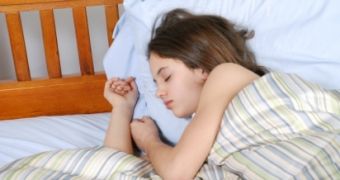There are people who, as to their own admission, don’t like to sleep because they feel as if they’re letting life pass them by. It is they, a new study reveals, who are more likely to develop colds, as lack of sleep (or the poor quality of it) is believed to weaken the immune system, which is no longer able to develop the antibodies necessary to fight off colds.
Sheldon Cohen, psychology professor at Carnegie Mellon University, and his fellow researchers performed a study on 153 men and women aged 21 to 55. Depending on how much and how well each of them slept, the way their body reacted when exposed to a cold virus varied significantly. The conclusion was that a good, resting night sleep of more than seven hours could help the body, though infected with the virus, fight it off and prevent it from taking over.
“People who slept less than seven hours were about three times more likely to get a cold than people who slept eight hours or more a night. People whose sleep was disturbed were much more likely to develop colds than people who went to sleep, slept all night, and got up in the mornings,” professor Cohen said, as quoted by CNN.
Speaking in concrete figures, the study seems to hint that an eight-hour night sleep with a 98 or more percent sleep efficiency (which translates into minutes spent tossing or trying to dose off) is ideal to protect the body against colds. This does not mean, however, that the body rejects the virus, scientists warn, as exposure of the 153 subjects to the cold virus showed. It does manage to get into the system, but is also gradually deterred from taking over, thus the person in question not actually getting sick.
“Many of the molecules and substances that circulate in [the] body and also within cells overlap between immune function and sleep. There are parallel paths here, so it’s not at all surprising that they affect each other.” said Dr. David Rapoport, the director of the sleep medicine program at New York University School of Medicine, about the relation between sleep and the quality of it, and the strength of the immune system.
The connection was there all along, he added, we just did not know where to look to see it. “Everybody knows that when you’re sick, you sleep. Likewise, when you don’t sleep, that seems to – according to grandma – make you more susceptible, and this study is along those lines. So it’s not totally out of left field to find these relationships,” he explained.

 14 DAY TRIAL //
14 DAY TRIAL //